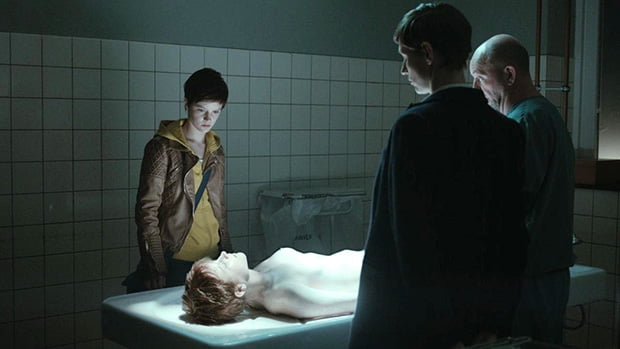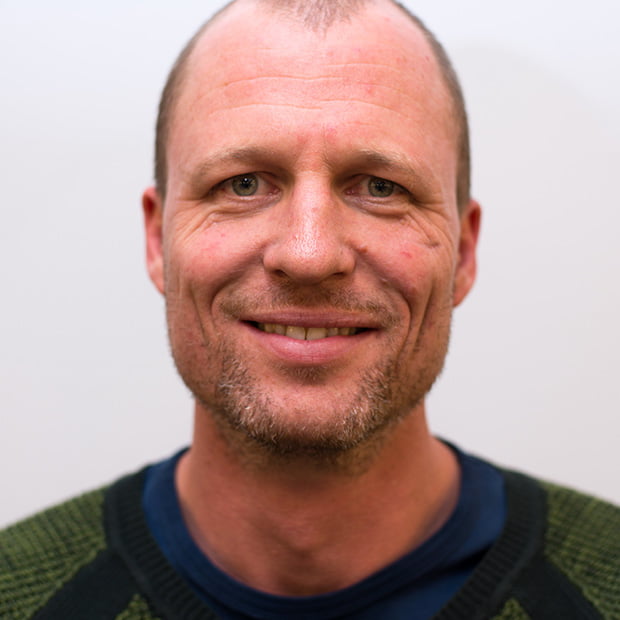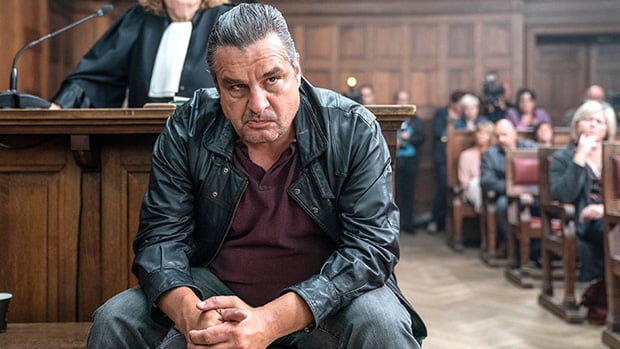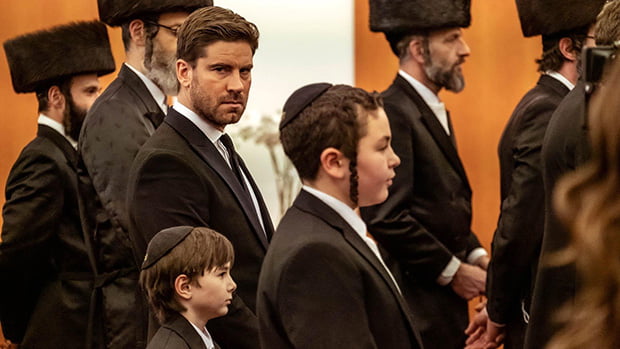Character building is key for De Mensen's Van Huyck

Andy Fry06-10-2022
©C21Media
Pieter Van Huyck of Flanders prodco De Mensen explores the impact of streamers on Belgian producers and highlights the company’s development slate, including the show being pitched at Connext this week.

Format rights to supernatural thriller Beau Sejour have been picked up in the UK
Despite the financial limitations that come with being based in a small territory, Flanders-based De Mensen has established itself as a European scripted powerhouse. Its VRT thriller series Undercover was picked up by Netflix and quickly established an international fan base. Nuanced supernatural thriller Beau Sejour, meanwhile, has scored a UK format deal.
Head of scripted Pieter Van Huyck says the company sets out to make “intelligent, accessible series. We create smart series but we’re not trying to show off how clever the producers are. We always have an eye on the public, so our series are not difficult to watch.”

Pieter Van Huyck
Van Huyck is especially driven by the dissection of character. “Everyone says their dramas are character-driven, even when they are really plot-driven. But we like to get right to the heart of human emotion, looking at how people respond when they are confronted with something. After that first emotional reaction we follow through the inevitable chain reaction.”
The escalating rivalry between a covert cop and a drug lord in Undercover is a case in point. “There are lots of twists and turns in the plot across three seasons,” says Van Huyck. “But what audiences always seem to remember is the characters. We got the same response with season one of Beau Sejour, a touching story about a family losing a child.”
Undercover consists of three seasons, but the franchise lives on through a prequel narrative focusing on drug lord Ferry Bouman (echoes of Gomorrah, The Sopranos and Breaking Bad).
“We put our characters through a lot in Undercover, so three seasons felt about right, although we would never rule out a fourth season,” says Van Huyck. “In the meantime, however, we made a prequel movie called Ferry and are in production on a series. The plan is to make three seasons that connect the events of the movie with what takes place in Undercover.”
Van Huyck is pragmatic about the financial limitations imposed on Flanders production, observing that producers and crews in the region “really know how to spend a euro.” But he says there are inevitable consequences of working within tight budgets.

Undercover follows the rivalry between a covert cop and a drug lord
“€700,000 [US$690,000] is generally a top-end budget for a scripted series here, but you’re unlikely to get more than €200,000 from a single partner. So it takes a lot of time and effort to build a budget. For that reason, we tend not to enter a series thinking about it being a long-runner – we just aim to get the first season made. Only then, if we get lucky, would we think about season two.”
Creatively, this means, “we don’t hold back in season one. We put every idea we have into making it as good as possible. That may explain why we don’t tend to think of our series as running to six or seven seasons. Three seasons tends to be the culture here.”
Some public money is available from within Flanders, but, inevitably, international becomes a key consideration in building scripted budgets. On Undercover, Netflix initially came in on the back of Netherlands rights, while for De Mensen’s limited series Lost Luggage, Arte in France is a partner alongside VRT.
Another show in development, Rough Diamonds (8×50’), has seen De Mensen join forces with Keshet International of Israel, Netflix and VRT to make a show centred on Hasidic Jew diamond dealers in Antwerp.
“Coproduction, pre-sales and minimum guarantees from sales agents are options,” says Van Huyck. “But the commercial side has to follow the story. We are not blind to the international market, but we always begin with an authentic narrative – something rooted in Flanders that may have universal themes that resonate. The risk of putting the market first is that you end up with something that lacks soul and empathy.”
Upcoming projects underline this story-first approach. “We are working on an ambitious period drama called Breendonk, which is about an ancient fort near the city of Mechelen that the Nazis used to imprison and torture people during World War Two. VRT is onboard, we have secured local subsidies and now we are looking for a partner to try to get into production next year.”
Global or regional streamers are an obvious target for the series. Summarising the impact of streaming on companies like De Mensen, Van Huyck is ambivalent: “More competition among buyers is good and we are talking to all the main streaming platforms. But there is always a question about what rights you will need to give up in return for financing a show.”

De Mensen, Keshet, Netflix and VRT joined forces for Rough Diamonds
Streamers are spending on local content, he adds, “but their budgets are generally quite tight because they are spreading investment across so many countries. I understand that is the reality of the business, but it is possible there is a conversation to be had on this point – because, ultimately, their businesses rely on having healthy production communities.”
Other De Mensen shows include heist series Bank Hackers, which did well in Germany on ZDF Neo; and a high-speed comedy called Chameleon, about three young black guys in Antwerp pursuing their dreams despite tough surroundings.
De Mensen is also pitching a new project at this month’s Connext event that explores the Heysel Stadium disaster, where numerous fans died before a match between Liverpool and Juventus. “The idea is to tell the story through the eyes of the people involved – a bit like Chernobyl. We have local partners but are hoping we can attract intentional interest, perhaps from an Italian partner.”
One additional point that gives De Mensen greater security than most producers is that it was acquired by Newen in 2019, after the TF1-owned French studio took a 60% majority stake. It’s a marriage that has worked well, says Van Huyck.
“They’ve been very good to us,” he says. “They have allowed us to keep doing what we do best and have been very supportive. The sales division gives us strategic advice and sometimes minimum guarantees, but we have not stopped working with other distributors. We have also got to meet some interesting people in the Newen group and have been co-developing with them. It won’t be long before we harvest the first production.”















.jpg)




























